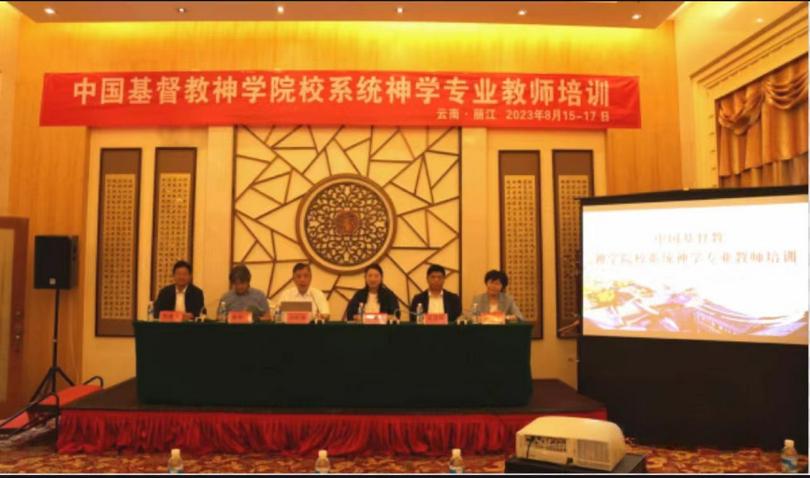A training program designed for the faculty of systematic theology took place in Lijiang, Yunnan.
Approximately 30 teachers specializing in the field of systematic theology participated in this training from August 15th to 17th, reported CCC&TSPM.
On August 15th, Rev. Xu Xiaohong, chairman of the national Three-Self Patriotic Movement (TSPM), underscored the significance of systematic theology course within the curriculum of theological institutions. This course not only pertained to the foundational interpretation of Christian doctrines but also played a pivotal role in nurturing theological students' capacities for theological reflection. When engaging in theological reflection, it was imperative to manage the dynamics between elements such as tradition inheritance and development, domestic and foreign paradigms, theoretical constructs and practical realities, and the interplay between the church and society.
He further said, "The Church of China, as a constituent of the global Christian community, should embrace and carry forward essential components, including the Bible, core tenets of faith, fundamental doctrines, the heritage of the ecumenical Church, and the principles of the Reformation. Additionally, valuable insights and successful experiences from Western Christian traditions, as well as those from the Christian contexts of Asia, Africa, and Latin America, should be assimilated and learned from. However, it remains crucial to discern and discard certain political and cultural influences that have become entwined with Western Christian theology, particularly those stemming from the colonial era. To foster the development of a Chinese theological framework, it is indispensable to evolve through a process of inheritance while concurrently delving into learning, thereby charting a trajectory that aligns with the wholesome advancement of the Chinese Church.
During the afternoon session, Rev. Kan Baoping, residential vice chairman of TSPM, along with Rev. Chen Xun, executive vice president of Yanjing Theological Seminary, delivered specialized lectures focused on the theme of "Systematic Theology and the Sinicization of Christianity."
In his lecture, Rev. Kan expounded upon five key facets: "The Significance of Systematic Theology," "Rootedness in the Tapestry of Chinese Cultural Traditions and Adaptation to a Socialist Society," "A Departure from Western Influences," "Principal Theological Tenets in the Pedagogy of Systematic Theology," and "Educational Methodologies and Textual Considerations."
Rev. Chen, in his presentation titled "Exploration of the Substance and Approaches to the Sinicization of Systematic Theology," provided insights into discussions revolving around discussions on heaven, earth, Daoism, and salvation.
On August 16th, according to the training schedule, participants were organized into two distinct groups, representing undergraduate institutions and junior colleges, respectively. These groups deliberated and formulated comprehensive curriculum outlines for the systematic theology programs within their respective institutions.
During the concluding ceremony on the subsequent day, Rev. Li Hongyu, advisor to Shandong CC&TSPM, and Zhu Hongyang, member of the faculty assembly at Anhui Theological Seminary, formally presented the curriculum outlines for systematic theology, symbolizing the collective efforts of the undergraduate and junior college students.
Rev. Kan underscored the necessity for theological faculty members to liberate their thinking from the confines of conventional theological paradigms. He encouraged them to develop indigenous teaching resources tailored for the Chinese Church, thereby establishing a theological framework that is uniquely suited to the ecclesiastical landscape of China.
- Translated by Abigail Wu












